Infestations of stored product pests are usually caused by bringing infested food home. Although adults are often found, it is the larvae that damage the commodity. Stored product pests are either beetles or moths, and are grouped as pests of whole grain, grain products and beans, and general feeders.
Rice Weevil, Sitophilus oryzae
It is 2- to 3-mm-long and reddish-brown. The thorax has round pits, and the wing covers have four light spots. It usually attacks whole corn, but has been found in macaroni and spaghetti. The life cycle can be completed in 30 days.
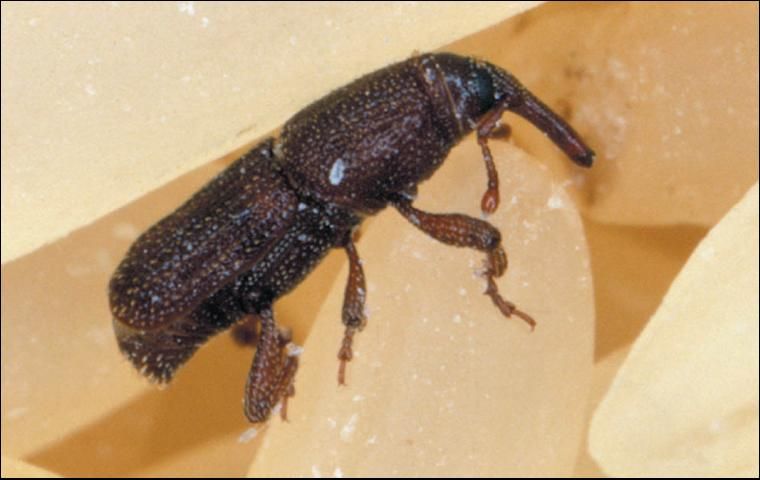
Credit: J. L. Castner, UF/IFAS
Lesser Grain Borer, Rhyzopertha dominica
It is 3-mm long and dark-brown to black. Its head is hidden beneath the thorax. The thorax is very rough, and the overall shape of the beetle is cylindrical. It attacks whole grain. The eggs are laid in clusters on the surface, and the larvae burrow into the kernels. The life cycle takes about 58 days.
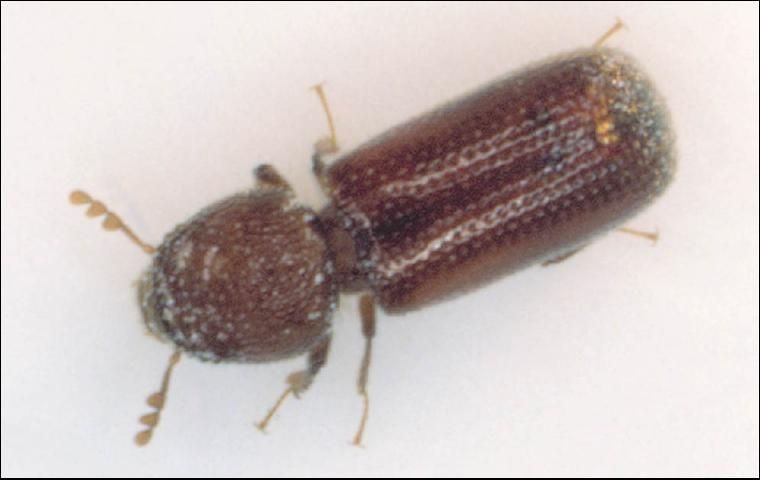
Credit: J. L. Castner, UF/IFAS
Flour Beetles, Tribolium spp.
The two major species are the red flour beetle and the confused flour beetle. They are reddish-brown and 3-mm to 4-mm-long. The antenna of the red flour beetle has a three-segmented club; the antenna of the confused flour beetle has a four-segmented club. Red flour beetles fly; confused flour beetles do not fly. They infest flour and milled grain. The life cycle takes about 30 days.
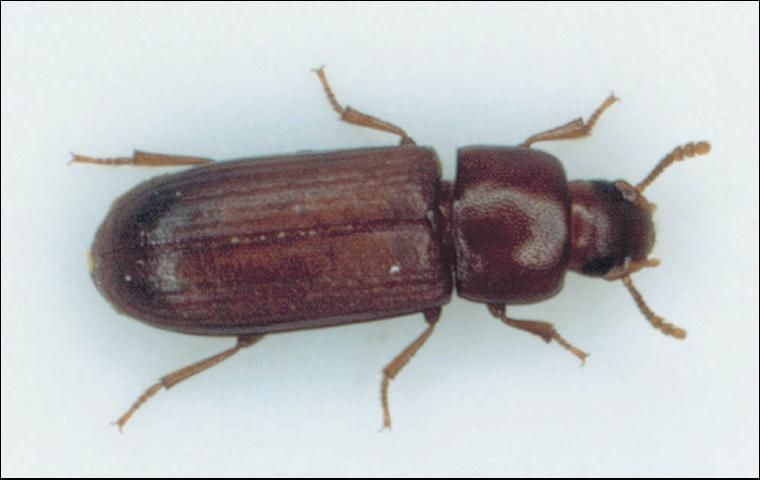
Credit: J. L. Castner, UF/IFAS
Sawtoothed Grain Beetle, Oryzaephilus surinamensis
It is about 2.5 mm long and is brown. The body is flattened, and the thorax has six sawtoothed projections on each side. It is common in cereal products and macaroni. Because it is small, it can enter packaging through tiny cracks and folds. It cannot fly and its life cycle takes about 30 days.
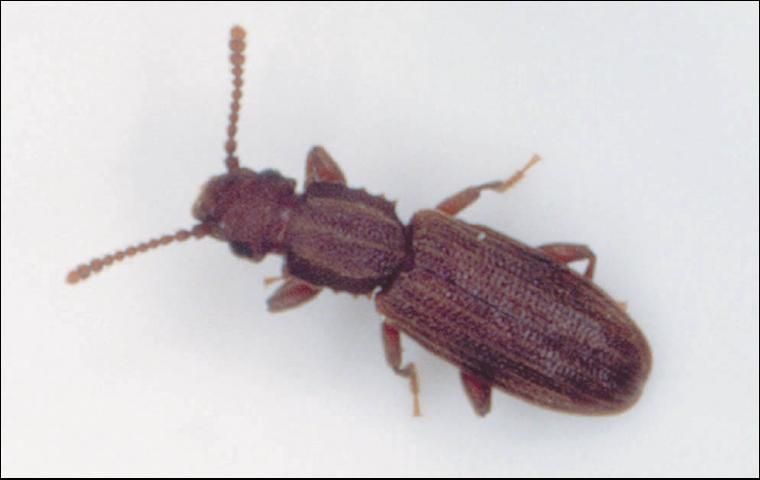
Credit: J. L. Castner, UF/IFAS
Cigarette Beetle, Lasioderma serricorne
It is 3-mm long and reddish-brown. The head is bent down under the thorax; the antennae do not have a club. The wing cover is smooth and covered with golden hairs. Besides attacking tobacco, it infests spices, seeds and dog food. The life cycle takes 30 to 50 days.
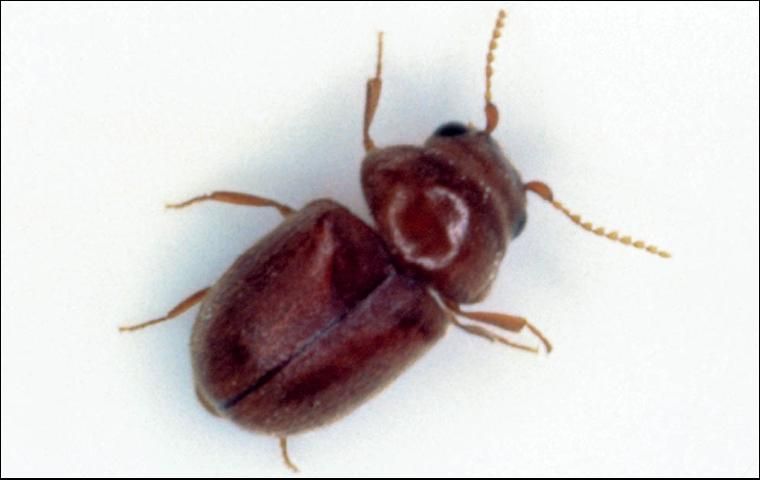
Credit: J. L. Castner, UF/IFAS
Drugstore Beetle, Stegobium paniceum
It is 2.5-mm long and brown. It has a three-segmented club on the antennae. The wing covers have longitudinal lines. It infests flour, cereal, spices, dog food and many other products. It has a life cycle of about 60 days.
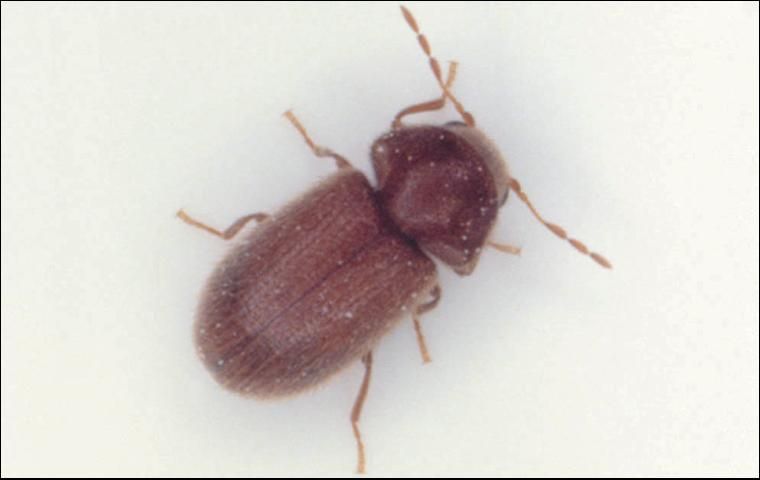
Credit: J. L. Castner, UF/IFAS
Weevils (family Bruchidae)
The bean weevil is olive-brown mottled with dark-brown and gray, and it is 3-mm long. It has one large and two small spines on the tip of the hind femur, and the legs and antennae are reddish. The cowpea weevil has a large spot in the middle of the wing cover, with black tips on the wings. These weevils attack stored beans and peas. The life cycle can be completed in 21 to 80 days.
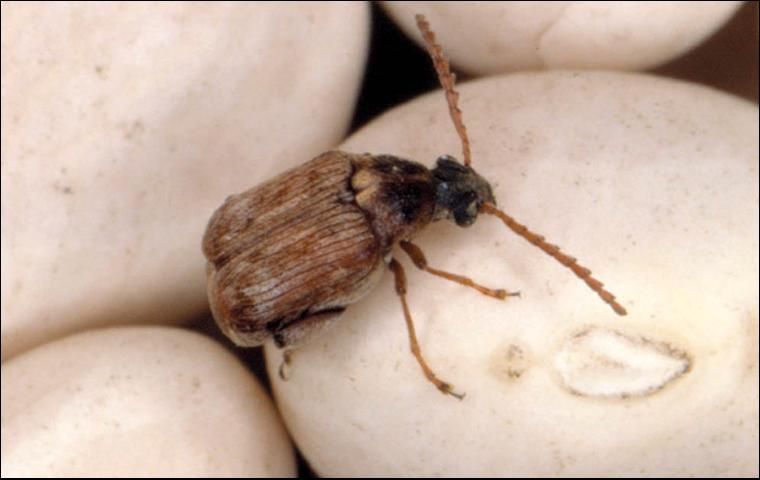
Credit: J. L. Castner, UF/IFAS
Mealworms (Adult), Tenebrio spp.
Tenebrio spp. (Plate 8). Mealworms, at 13-mm long, are the largest insects attacking stored grain. The yellow and the dark mealworms are the two most common species. They are shiny-black with well-developed wings. They fly and are attracted to light. They infest milled grain that has high moisture. The life cycle can be completed in 10 months.
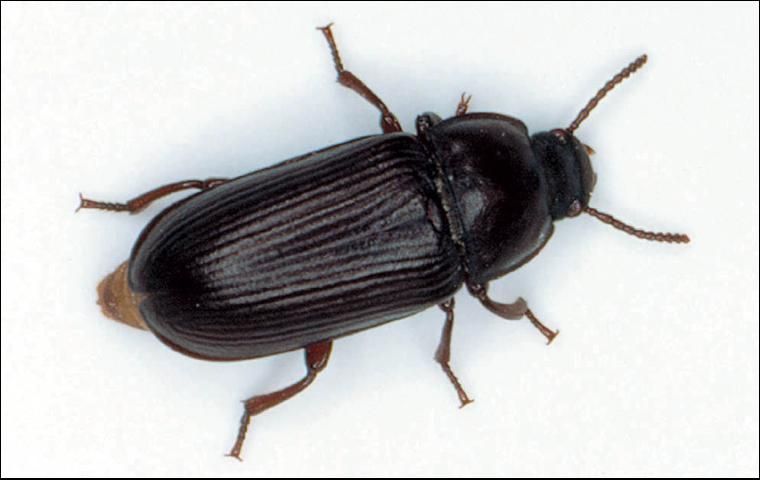
Credit: J. L. Castner, UF/IFAS
Almond Moth, Cadra cautella
It has a wingspread of about 15-mm. The wings are brownish- or blackish-gray with the base lighter than the wing tip, which also has a fringe of hairs. The almond moth infests dried fruit and nuts. The life cycle can be completed in 60 days.
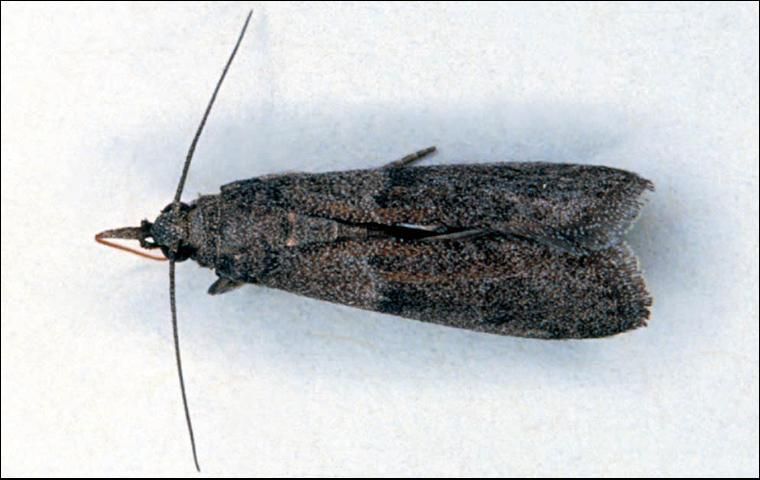
Credit: J. L. Castner, UF/IFAS
Indian Meal Moth, Plodia interpunctella
It has a wingspread of about 19-mm. The wings are tan on the basal one-third and coppery-colored on the rest. The larvae spin webs on the infested product. The life cycle can be completed in 60 days.
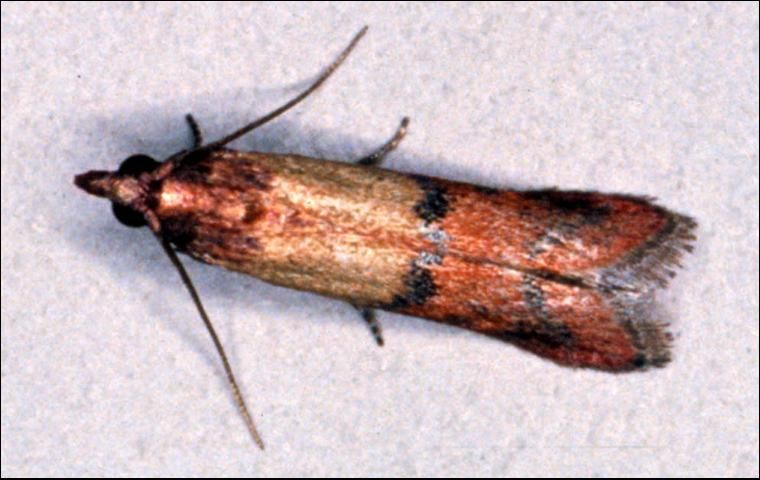
Credit: J. L. Castner, UF/IFAS